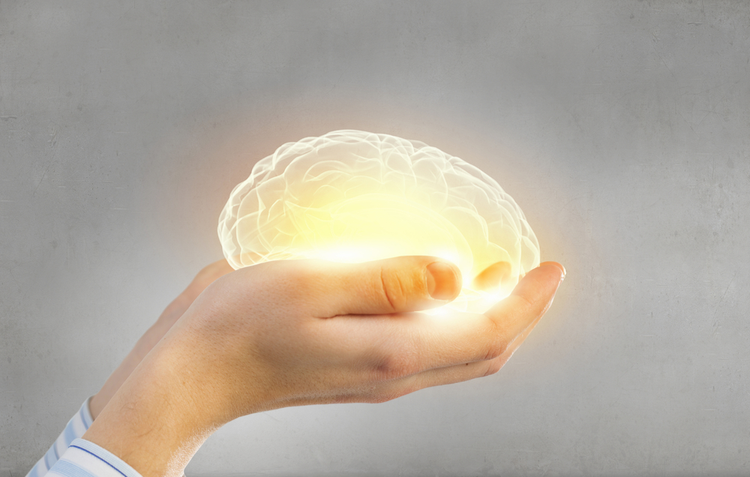 I. Introduction
I. Introduction
A. Overview of Mental Health
Mental health encompasses emotional, psychological, and social well-being, influencing how we think, feel, and behave. It plays a crucial role in determining how we handle stress, relate to others, and make decisions. Good mental health is not just the absence of mental disorders but involves thriving in various aspects of life, including personal and professional arenas. Mental health affects our quality of life and our ability to cope with challenges, making it essential to take proactive steps to maintain and enhance it.
Maintaining mental health is an ongoing process that involves a combination of lifestyle choices and self-care practices. Understanding the importance of mental health helps in recognizing the need for daily practices that support emotional balance and overall well-being. By addressing mental health proactively, individuals can build resilience and develop healthier coping mechanisms for dealing with life’s demands.
B. Benefits of Daily Practices
Engaging in daily mental health practices offers numerous benefits, including reduced stress levels, improved mood, and enhanced overall life satisfaction. Consistent mental health practices can lead to better emotional regulation, increased resilience, and a more positive outlook on life. These practices help in managing daily stressors and preventing the buildup of negative emotions that can affect mental well-being.
Incorporating daily practices such as mindfulness, physical activity, and a balanced diet can create a strong foundation for mental health. Regular engagement in these activities not only supports emotional stability but also contributes to long-term mental health improvements. By making these practices a part of your daily routine, you can experience lasting benefits and cultivate a healthier and more balanced lifestyle.
II. Daily Mental Health Practices
A. Routine Establishment
A consistent daily routine is fundamental for maintaining mental well-being. Establishing a structured routine provides a sense of stability and predictability, which can be especially comforting during times of uncertainty. Having regular wake-up and sleep times, as well as scheduled meals and activities, helps manage stress and creates a sense of control and order in your life.
In addition to providing structure, a well-established routine allows you to allocate time for self-care and relaxation. By setting aside specific times for activities that bring you joy and fulfillment, such as hobbies or spending time with loved ones, you reinforce positive mental health practices. Over time, these routines become ingrained habits that support emotional stability and contribute to a more balanced and satisfying life.
B. Mindfulness Techniques
Mindfulness involves being fully present in the moment and accepting it without judgment. This practice can help manage stress and anxiety by shifting focus away from negative thought patterns and towards the present experience. Techniques such as mindful breathing, body scans, and guided meditation are effective ways to practice mindfulness and can significantly impact mental well-being.
Incorporating mindfulness into your daily routine can be as simple as dedicating a few minutes each day to practice. Mindful breathing exercises, for instance, can help calm the mind and reduce stress. Regular mindfulness practice enhances emotional regulation, improves concentration, and fosters a greater awareness of your thoughts and feelings, leading to a more balanced and calm mental state.
C. Physical Activity
Regular physical activity is a key component of mental health. Exercise stimulates the release of endorphins, which are chemicals in the brain that act as natural painkillers and mood elevators. Engaging in physical activity not only improves physical health but also has a profound impact on mental well-being by reducing stress and anxiety levels.
Incorporating at least 30 minutes of moderate exercise into your daily routine can yield significant benefits. Activities such as walking, jogging, yoga, or dancing can elevate your mood and enhance overall mental health. The positive effects of regular exercise are well-documented, making it an essential practice for anyone seeking to improve their mental health and maintain a balanced lifestyle.
D. Use of Supplement
CBD gummies are a popular supplement for supporting mental health and overall well-being. These gummies, infused with cannabidiol (CBD), offer a convenient and enjoyable way to potentially reduce stress and anxiety. Add: These gummies, infused with cannabidiol (CBD), as well as delta 9 infused drinks online, offer a convenient and enjoyable way to potentially reduce stress and anxiety CBD interacts with the body’s endocannabinoid system, which plays a role in regulating mood, stress, and emotional balance.
Incorporating CBD gummies into your daily routine can be an effective addition to your mental health practices. They provide a measured dose of CBD, which may help promote relaxation and alleviate symptoms of anxiety. When selecting pure CBD gummies, it’s important to choose products from reputable brands and ensure they have been tested for quality and potency. Learn more about the benefits of using CBD gummies as part of a comprehensive mental health regimen that can complement other practices like mindfulness and physical activity.
III. Creating a Balanced Lifestyle
A. Nutrition & Diet
A balanced diet plays a crucial role in supporting mental health. Certain nutrients, such as omega-3 fatty acids, vitamins, and minerals, are essential for optimal brain function and mood regulation. Consuming a diet rich in fruits, vegetables, whole grains, and lean proteins helps provide the necessary nutrients for cognitive health and emotional stability.
Avoiding excessive intake of processed foods, sugary snacks, and caffeine is also beneficial for mental health. These types of foods can cause fluctuations in blood sugar levels, leading to mood swings and irritability. Maintaining a well-rounded diet ensures that your body receives the nutrients it needs to support brain health and contributes to a more stable and positive mood.
B. Sleep Quality
Quality sleep is vital for mental health and overall well-being. During sleep, the brain processes emotions, consolidates memories, and restores cognitive function. Poor sleep or insufficient rest can lead to increased stress, irritability, and difficulty concentrating, negatively impacting mental health.
To improve sleep quality, establish a consistent sleep schedule by going to bed and waking up at the same time each day. Creating a relaxing bedtime routine and ensuring your sleep environment is conducive to rest can also enhance sleep quality. Avoiding screens and stimulating activities before bedtime can further support restful sleep and contribute to better mental health.
C. Social Connections
Strong social connections are essential for mental well-being. Positive relationships provide emotional support, reduce feelings of loneliness, and offer a sense of belonging. Engaging with friends, family, and community can enhance mood and provide a buffer against stress.
Building and maintaining social connections involves nurturing existing relationships and seeking out new social opportunities. Participating in social activities, joining groups or clubs, and reaching out to others can help strengthen your social network. Cultivating meaningful connections contributes to a supportive social environment, benefiting overall mental health.
IV. Incorporating Practices into Your Day
A. Routine Integration
Integrating mental health practices into your daily routine requires thoughtful planning and consistency. Start by setting small, achievable goals for incorporating new practices into your day. Gradually build these practices into your existing routine to create a sustainable approach to mental health enhancement.
For example, you might begin by dedicating a few minutes each morning to mindfulness or exercise. As these practices become a natural part of your routine, you can gradually increase their duration and frequency. Consistent integration of these practices helps reinforce their benefits and makes them an integral part of your daily life.
B. Practical Tips
Implementing mental health practices effectively involves adopting practical strategies. Use reminders or set alarms to prompt you to engage in mindfulness exercises, physical activity, or other wellness practices. Keeping a journal to track your progress and reflect on the positive changes you experience can also be helpful.
Additionally, create a supportive environment by organizing your space in a way that promotes relaxation and well-being. Incorporate calming elements such as soothing colors, comfortable furniture, and inspiring decor to enhance your mental health practices and make them more enjoyable.
C. Tracking Progress
Monitoring your progress is essential for evaluating the effectiveness of your mental health practices. Regularly assess how these practices impact your mood, stress levels, and overall well-being. Use tools such as mood-tracking apps, journals, or self-assessments to gauge your progress and identify areas for improvement.
Tracking progress also helps maintain motivation and reinforces the benefits of daily mental health practices. Celebrate small victories and stay focused on the positive changes you observe. By staying mindful of your progress, you can make informed adjustments to your practices and continue to support your mental well-being effectively.
V. Conclusion
Incorporating daily mental health practices into your routine can significantly enhance your overall well-being and emotional stability. By establishing a consistent routine, practicing mindfulness, engaging in physical activity, maintaining a balanced diet, ensuring quality sleep, and fostering strong social connections, you create a comprehensive approach to managing stress and promoting mental health. Each of these practices supports the others, contributing to a more balanced and fulfilling life. The benefits of these practices, such as reduced stress, improved mood, and greater resilience, can lead to a more positive outlook and enhanced quality of life.
As you embark on this journey to better mental health, start with small, manageable changes and gradually integrate these practices into your daily routine. Consistency is key to experiencing lasting improvements, so be patient and stay committed to your mental well-being. Celebrate the positive changes and progress you make along the way. By making these practices a regular part of your life, you are taking proactive steps to support and enhance your mental health every day.


